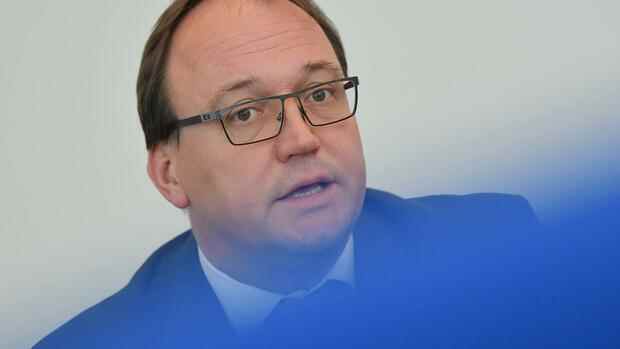Dusseldorf Reiner Blaschek didn’t have much time to get used to the job. Since the turn of the year, the manager has been the successor to Frank Schulz at the German national company of the world’s largest steelmaker Arcelor-Mittal – and since then has mainly been involved with the numerous upheavals that have hit the steel industry, which has been plagued for a long time, in recent months. This ranges from the consequences of the pandemic and demand-related supply bottlenecks to the war in Eastern Europe.
At the moment, the industry is primarily suffering from high energy prices, which have multiplied as a result of the Russian attack on Ukraine. At the Hamburg site, Arcelor-Mittal has already had to cut production because the operation is no longer economical given the increased costs.
There, sponge iron is extracted from iron ore using natural gas and then melted into steel in an electric arc furnace using electricity. The plant is feeling the effects of the energy crisis in two places.
“We are facing a massive increase in costs,” said Blaschek in an interview with the Handelsblatt. You can see that in the reaction of the entire industry. The most important thing now is to ensure the supply of energy. “In addition, as a manufacturer, we also have to deal with certain imponderables as to how our customers will react to the upheavals,” says the graduate engineer, who spent 25 years of his career at Arcelor-Mittal or its predecessor companies – Sollac Lorraine, Usinor, Arcelor.
Top jobs of the day
Find the best jobs now and
be notified by email.
One billion euros for Bremen and Eisenhüttenstadt
He describes the handover by his predecessor Schulz, who had held the position since 2014, as a “smooth transition that began months ago”. As the former managing director for the locations in Bremen and Eisenhüttenstadt, Blaschek is already familiar with the German production network of Arcelor-Mittal.
Both plants play a central role in the company’s decarbonization strategy, and the Luxembourg steel group intends to invest a total of one billion euros there in CO2 reduction.
Blaschek said that the capacity required for this had already begun to be built up. Engineers are already being hired to accompany the change, and initial preparations are being made for the construction of new plants that can be operated with natural gas and hydrogen.
The world’s largest steelmaker has appointed Reiner Blaschek as the new head of Germany.
(Photo: Reuters)
By 2030, the group wants to save a total of seven million tons of CO2 in Germany – this corresponds to around ten percent of the savings volume planned by the federal government for German industry by then.
However, the plans date back to a time when natural gas was considered an easily available energy source in Germany – which is why many steel manufacturers initially wanted to use natural gas as a bridging technology before switching to green hydrogen, which reduces the carbon footprint of steel production compared to coal-based ones Procedure already significantly improved.
“Politics must now take care of securing the gas supply at economical prices in the medium and long term,” said Blaschek. He warned against a short-term gas boycott because of the great dependency of German industry and because of the lack of alternatives, which could quickly lead to undesirable consequences. “It is important to reduce the high level of dependency as quickly and as much as possible.” In combination with a reduction in gas consumption, this is the more pragmatic alternative.
Blaschek demands more support from politicians
As head of Germany, Blaschek will also be responsible for maintaining the company’s political relationships. Because like the entire industry, Arcelor-Mittal is dependent on both financial and regulatory support in order to manage the transformation to climate-neutral production processes.
This not only applies to the billions in investments that hardly any manufacturer can finance from ongoing operations alone, but also to the operating costs, which will increase significantly as a result of switching to hydrogen.
He is currently waiting for the processing of the investment grant applications submitted by Arcelor-Mittal for the conversion of its production network. In addition, instruments such as an operating cost adjustment (“Carbon Contract for Difference”, CCFD) and a CO2 border tax (“Carbon Border Adjustment”) for non-European steel imports are needed so that domestic manufacturers are not disadvantaged compared to foreign producers.
“The situation was already complicated enough without the daily upheavals,” said Blaschek. But now politicians must finally start making concrete decisions. “2022 will be the year of truth for us.”
More: Short-time work, a slump in orders, shortages of raw materials: the war in the Ukraine unsettles the steel industry.
